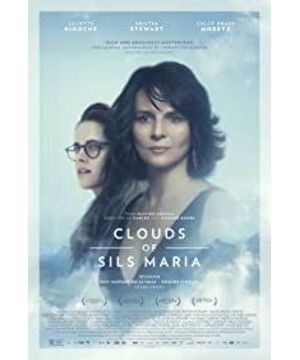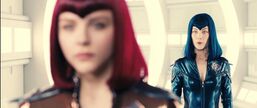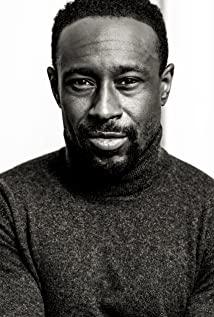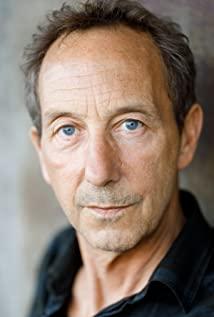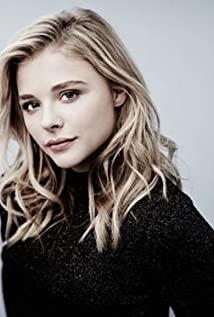I couldn't help but remember something about the Sils Maria I just watched. I like it very much.
Put the BGM first
1. Actor/nesting
There is a type of director/film that is very appreciated: under their director, the actors seem to be themselves, or repeat their most familiar routines; but for the film, you feel that they should be there. For example, I saw Cheng Er's movie not long ago, where both Yan Wang and Wang Luodan performed their own clichés. Zhang Mo had not yet established a routine, but the ruffian policeman felt that it was very suitable for him when he acted (you can continue to act like this); It fits perfectly, very catchy. The same goes for this Sils Maria.
The film consists of three women, each with their own style and charm. Juliette Binoche plays Maria, who looks independent, confident and thoughtful, but somewhat out of the public eye (perhaps a real Binoche is milder?). Kristen Stewart plays her close assistant Valentina, who is somewhat boyish, very capable, and loves to express. Every time Val smokes, I think: Oh my God, this is KS himself! Jo-Ann, a new-generation actor played by Chloë Moretz, appeared very late. The role is delicate and sharp. I was a little surprised to think of her as the actor, but it came out well. At least she and KS appeared with a bright wind.
The story begins when Maria learns that her teacher, Wilhelm, has passed away. Twenty years ago, she starred in the "Snake of Maloya" written by Wilhelm and became famous, and she has always been in contact with her teacher and teacher; now the young director Klaus Diesterweg is on this occasion to rearrange the stage play and invite Maria to join. Just twenty years ago, Maria played Sigrid, who attracted female boss Helena and led her to suicide in desperation, when Susan Rosenberg, who played Helena at the time, died in a car accident after the show. And now, the old Maria is being asked to play Helena, and the new version of Sigrid belongs to the young Jo-Ann.
It took Emma some brains to tell the story clearly. Multiple nested story foundations can already be seen: scenes from twenty years ago/after, as well as rehearsal by Maria and assistants, and the three women brought multiple sets of "actor-movie roles-stage play roles" correspondence In addition, the title of "Snake of Maloja" comes from a natural phenomenon in the Swiss resort of Sils Maria, that is, the clouds circling like a snake in the Maloja pass. German director Arnold Fanck shot the black and white silent film Maloja. "Cloud Phenomenon", which is also borrowed in the film (here is the film review "Twin: Portraits of Women in Time" ); and most of the film takes place in Sils Maria, where the title of the film is - ah, this is simply A fertile soil, from which a rich drama conflict, tension and audience's brain supplement can be generated, which is very interesting and the effect is very brilliant.
Maria/Binoche and Jo-Ann/Moretz don't actually have many scenes, but assistant Val/KS has been acting as Sigrid, and he has spoken to him. I think this is the most important part of the whole film. Maria recites lines, or gets stuck, and then stops to add her own comments, and every time she gets stuck, she reacts violently. I think she blames her trouble reciting lines because she doesn't agree with Helena's character design. She likes the sharp Sigrid, thinks Helena has it all but lets herself go into despair. She became famous for Sigrid, and she wanted to be young Sigrid all the time. In response, Val, who is also thoughtful and outspoken, disagrees with the so-called charm of Sigrid. In one paragraph, she said that Helena is more sexy, and Sigrid is too arrogant; but at the same time, she also pointed out that Maria did not use her full strength to play Helena, and what impressed her most was her praise for "young":
The scenes of memorizing the lines are shown vividly. The two actors and assistants constantly recite the lines of the stage play, walking from the comfortable house of Sils Maria to the garden, and then to the beautiful mountains and forests, and the shots are smooth; The beginning and the end, regardless of the stage, are interspersed in real life. The deliberate blurring has made the barrage confused, unable to distinguish between the lines and the daily dialogue - director, you little bitch, it turns out that they are another pair of Helena VS Sigrid, and Val is (probably more important) the other A Sigrid.
The more stereotypical young Jo-Ann is only watched from a distance for a long time: Val's negative retelling, Maria's search for gossip videos. It was a bit abrupt when it was delayed until the real appearance. Without any notice, Shi Shiran appeared in an elegant restaurant, which was bright and soft. Then, when he met Maria, he also showed the courtesy of a junior. Reluctantly speaking, the real Moretz is a super-killer girl (I also remember the quirky sister in 500days with Summer), Dabei's playmate and ex-girlfriend, and under the same media attention as Jo-Ann, she has already Grow into a star who can be elegant on the red carpet (albeit with a short neck and a fat upper body).
Val also quickly turned to identifying with Jo-Ann, gushing over the fact that her commercial films actually have complex connotations in a sci-fi setting and absurd plots (are you teasing the Twilight series and Kick-Ass, director you? this little bitch). Maria is of course noncommittal about this; not only here, but the two of them seem to be happily fighting each other throughout the film. Soon Jo-Ann herself also showed a youthful arrogance. When Maria raised a different opinion on the performance, she bitchy and did not give in. With a smile, people sighed: Chloe Moretz's face is so small and tight. It is also natural to come to the conclusion here that although Jo-Ann is promiscuous and alcoholic, she will be successful (it doesn't need to be a good girl). Just like Maria 20 years ago, she didn't think much of it, but she acted like this, and she had an unstoppable vitality anyway.
(It's just that Jo-Ann on either side is separated from the audience, so she's a good person.)
2. Side branch/truth/beauty
In the nested story frame and character relationship, it is easy to give birth to various sidelines, which is also the most interesting thing about Sils Maria. For example, Maria was very disgusted with meeting her old lover, and finally gave him the room number; she talked about her past with her old lover, and brought out the ambiguity with her teacher; she went to Maloya Mountain Pass with her teacher's widow Rosa... She was right The character has always resisted and confused, so she made an appointment with the director Klaus, but she caught up with Jo-Ann to gossip. In that scene, she was ignored, watched Jo-Ann hide from the media, and then ran into the car with her head in her arms. All this obviously has nothing to do with her; did she make another appointment with the director later? I don't remember either.
Another favorite episode is when Val reports to the boss that he is going on a date with a famous photographer, the boss will be surprised, cooperated and ridiculed. When they met in the previous scene, the photographer was going to take pictures of Maria, and Val introduced the two to each other. It was an ordinary work and communication scene, and the two interacted very little. The treatment is simple, clean, and intimate: how do they meet the eye? We don't know, the boss doesn't know either, that's how it is in reality.
This photographer has nothing to do with it. We have a little wonder, and we may soon forget it. This is also true in reality. All kinds of side branches are buried in the middle like grass snakes, and like snakes, they crawl over and scratch you from time to time, and even bite you. I can't say for sure what the director's arrangement is. Many of them are naturally to highlight the characters, or to explain the background or to bring out the relationship between the characters; some are to create a sense of reality; some must be, "I like it" - these reasons may also be both. There is.
The important thing is... I think these reasons are important because they determine the plot, the audience's feelings, and the director's style, and finally come together as a whole.
I even like the director's "relaxed" handling. For example, Maria has always hated playing Helena, not only discussed and criticized with the assistant, but also pushed the agent to break the contract. Or at least a burst. But no, the scene suddenly changes to Jo-Ann and her lover on a secret date, and her appearance is a surprise; then here she and Maria also meet, and Val again politely helps with the introduction, and the doubts are put down, oh, so I won't Resignation, and Val has already laid the groundwork as an assistant, but there is no such thing as a fortune ahead. Another example is that in the end, Maria and Jo-Ann handled the roles differently. According to the routine, you thought this was a big contradiction, but it didn't break out, so you just let it go.
The layers of the film are too rich, and it is unclear which is more important (maybe because my understanding is limited), unlike the so-called commercial film with a clear main line, each shot has a clear meaning. There are also passages that I don't understand, like the vertigo scene and soundtrack of Val driving out on a date. I can only think that the director just juxtaposes a lot of life out of context, just like in reality we are also multi-task; we are inconsistent, and we can’t tell what we want; What comes out or what is accepted, but other people's opinions may gradually come in; in reality, most conflicts may be hidden, and then deliberately or not, some solutions (or may not be found) are found. A multi-task in the long-term sense. A lot of things can't be explained, just like Wong Kar-wai's description of Zhang Zhen's role in a generation of masters: You will meet someone in your life, you will find it very interesting, and then he will disappear. - It still makes sense in the end. But life is too big, and it is impossible for us to grasp it as a whole and correctly correspond to it. We can only relax and participate in it. Some blank spaces will naturally be supplemented by the brain, and there will also be many confusions that cannot be filled by the brain.
It's not just imitating the texture of reality...but even if it is, anyway, I think the sense of reality and the comfort that comes with it is very important, so important that although there will be no way to keep up, I can still stay in it and watch it with peace of mind When I went down, I felt like I was too lazy to move on my own sofa, and finally I closed the computer and realized the director's gentle larger than life.
I also like the different strengths the director uses for different characters. Jo-Ann doesn't write much, and she simply shows a young and sharp image, and because of this simplicity, she doesn't seem annoying. Maria is undoubtedly the thickest. Her divorce, her past, and her opinions actually reveal that she is also a sharp person, and she looks stubborn because of her age. It is worth mentioning that many things in her past and future are entangled like ghosts, she seems a little heavy because of her twisting, but the director does not need to flash back montages or the like, but all under 'NOW', the time is linear Forward and clean. Compared with the two of them, Valentina is probably the most likable, she is outspoken, not aggressive, and at the same time qualified. She and Maria have been fighting each other for a long time, both It confuses me: Maria's reaction is actually quite rude, but Val doesn't seem angry and has a good personality. It wasn't until she suddenly disappeared at the end that I realized that the contradiction and interaction have always been there. By the way, I am also very Love where she disappears: she and Maria come from the distant shot one after the other, the shot is low, so it disappears down to the horizon, and then Maria comes up again, but she doesn't; the next shot continues to follow Maria, and she sees, She is lyrical, and then she turns around when she finds that there is no response. We and Maria find that Val is missing. There is no explanation for her departure, but the audience can make a reasonable judgment, just like the ending of Helena they were discussing a moment ago: She went that high on purpose and must be dead. (Val certainly didn't, and the audience wouldn't worry.)
Valentina seems positive and calm, like a bystander role, I think to a certain extent the director's voice. Regarding the topic of "aging" that Maria resisted, Val/director narrated enough, and then gave his own opinions and guidance. Of course there are others in the film (Jo-Ann's writer boyfriend/Jo-Ann/last new young director). In the interweaving of various opinions, Maria also made a little change in the end.
I've been chattering a lot about the "realism" that I like, let's talk about beauty. A circumstantial evidence of the beauty of the film is, what are its other translations? - "Starlight Cloud Quiet (Taiwan) / Sitting and Watching the Cloud Rising (Hong Kong) / Sils Maria's Cloud", there is no strange translation.
Aesthetic is a big thing, but it's actually very personal. For example, I like the director's choice of 2.35:1 format, which is very suitable for showing the Swiss mountain scenery. Unlike the pure beauty of the BBC style, the color saturation in Switzerland here is not high, but with the plot of their Hiking in light clothes, there is a mild sense of coldness, which I like very much. The scenes of the stage play at the back are beautifully set up, and the shots are also brilliant: open the curtain first (Emma's curtain projection also likes it), and give a panoramic view; later, a closer shot pans over to explain the stage, and at the same time accumulates emotions and plays out. Wide-format screen capacity.
Another example is that Maria's magical laughter is a bit of a drama for me, and Canon, who has appeared several times, also thinks it doesn't fit, but when the last scene matches the picture, I'm used to accepting it - ah, let me repeat it again, the cloud of Maloya It's so beautiful, it's a bonus.
3. Women/Aging
Three women in one play, this should be regarded as a "feminist film", right? But because of its mildness, I can't help but think of the recent hit "Elle" after seeing it. Elle is too sharp, and the background and dramatic conflict are hundreds of times stronger, so that the ending is too catchy, and it's absurd and cartoony, but predictable. Sils Maria was unpredictable, and there were many small surprises embedded in the process, and if the two styles of tension and release were opposed, I would probably always prefer the type of release.
Another difference is that the erotic part in Elle is very heavy, after all, it shows how women face the world of men; there is almost no eroticism here, and it shows the interaction between women. After watching Sils Maria, several men are a little blurry (similar to July and Ansheng, men are only props to assist the plot); Elle shows the men around the heroine one by one, which may be too powerful. The heroine needs other distinctive supporting roles to support it (strong enough to be close to feminism).
The similarity between the two is that they are both modern, and they embrace reality because they are modern. For example, the female protagonist in Elle switched careers to open a video game company. I may never have thought of such a career change. In Sils Maria, the female stars and assistants are very professional, and their working conditions are very correct. The comparison that comes to my mind is, of course, the female characters in the country now. They are all three women in one play. The women a few years ago are not bad at all. Anyway, all three women are in love. An actress like Zhou Xun, I don't remember what kind of occupation is the best life for a spoiled woman (fortunately, Li Mi's guess is that she is a bad driver). But in Sils Maria, the assistant helped Maria arrange everything, the director asked her to act, and Chanel waited for her to pick clothes for the film (but the people related to her were professional and not flattering), but they dressed beautifully Maria in the V-neck evening dress is still panicking about aging - it's not just panic, what you hate is often what you can't escape, anyway "aging" brings a lot of emotions and everything, from a seemingly good life. Breeding, this is how the contagion comes out.
Without knowledge reserve and subject training, I really can't talk about feminism. I just think that, compared to Male VS Female, in another dimension, Younger VS Older probably doesn't involve so much in global movies (not at all). But on the other hand, how the two lines intersect, how men live out themselves in the years, is always discussed more in a society where men have a stronger voice, while women's thoughts, confusion and behavior, because of the right to speak , the lack of performance is too small. But back to the original point, are the growth paths and choices of men and women really different? If they are different, are they biologically determined, or are many still shackled by social attributes under history and culture?
This is back again, I can't explain it anyway.
Anyway, after all, everything belongs to the topic of "how should people deal with themselves". Life is impermanent and time passes by. No matter what you do, enjoying the uncertainty and ambiguity in it is a way to deal with it. Closing the computer, I finally remembered a poem I read ten years ago and I really liked——
From a flood of invisible water, the water fetcher takes an oval bottle, and this little water gets a fixed shape; look, the wind flag fluttering in the autumn wind, it holds some irresistible objects, let the distant light , the distant night and the glory of some distant vegetation, and a desire to run into the distance,
All keep some on this flag. We have heard the sound of the wind all night, and watched the yellow grass and red leaves all day,
Where are our thoughts and thoughts directed? I hope these poems are like a wind flag to hold some irresistible things.
View more about Clouds of Sils Maria reviews


